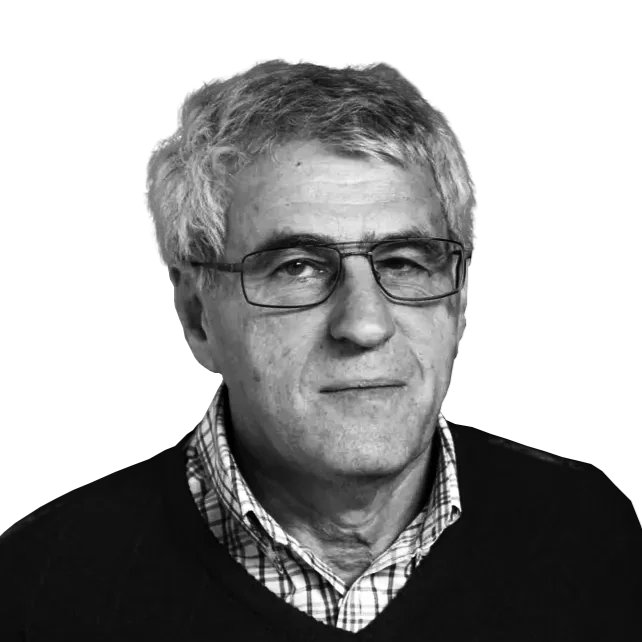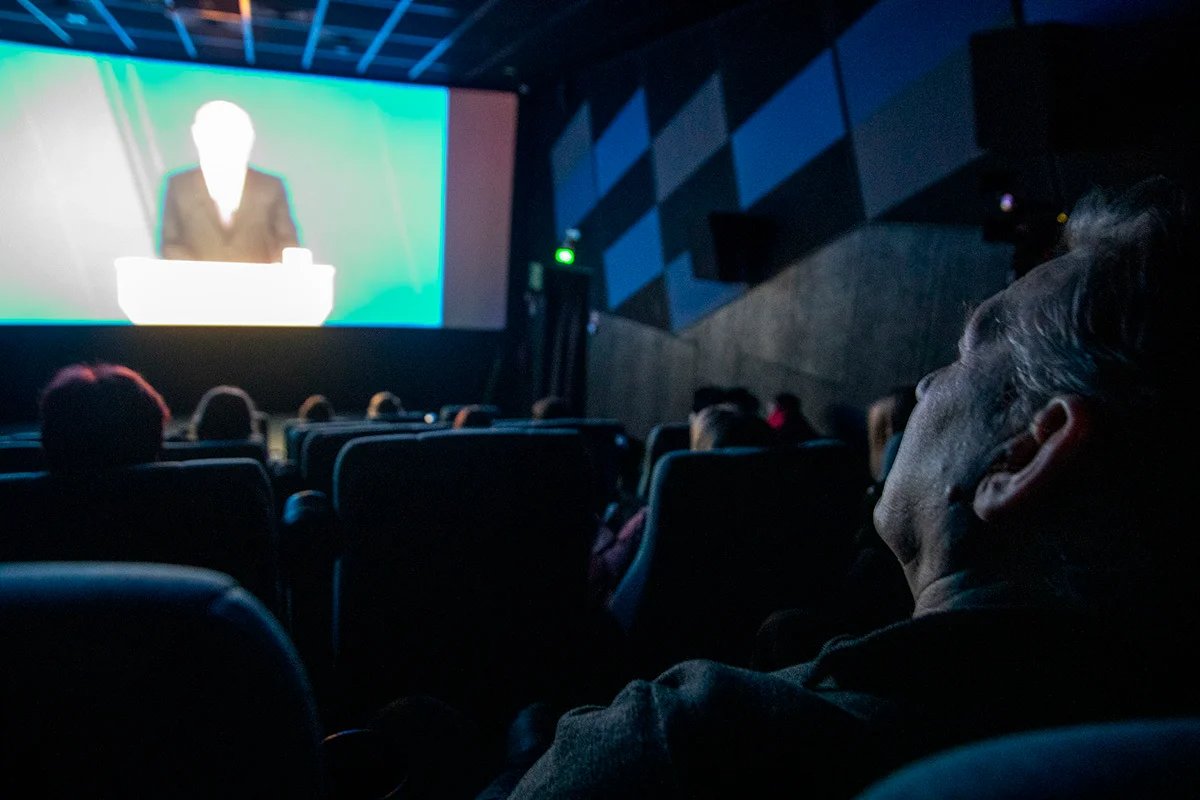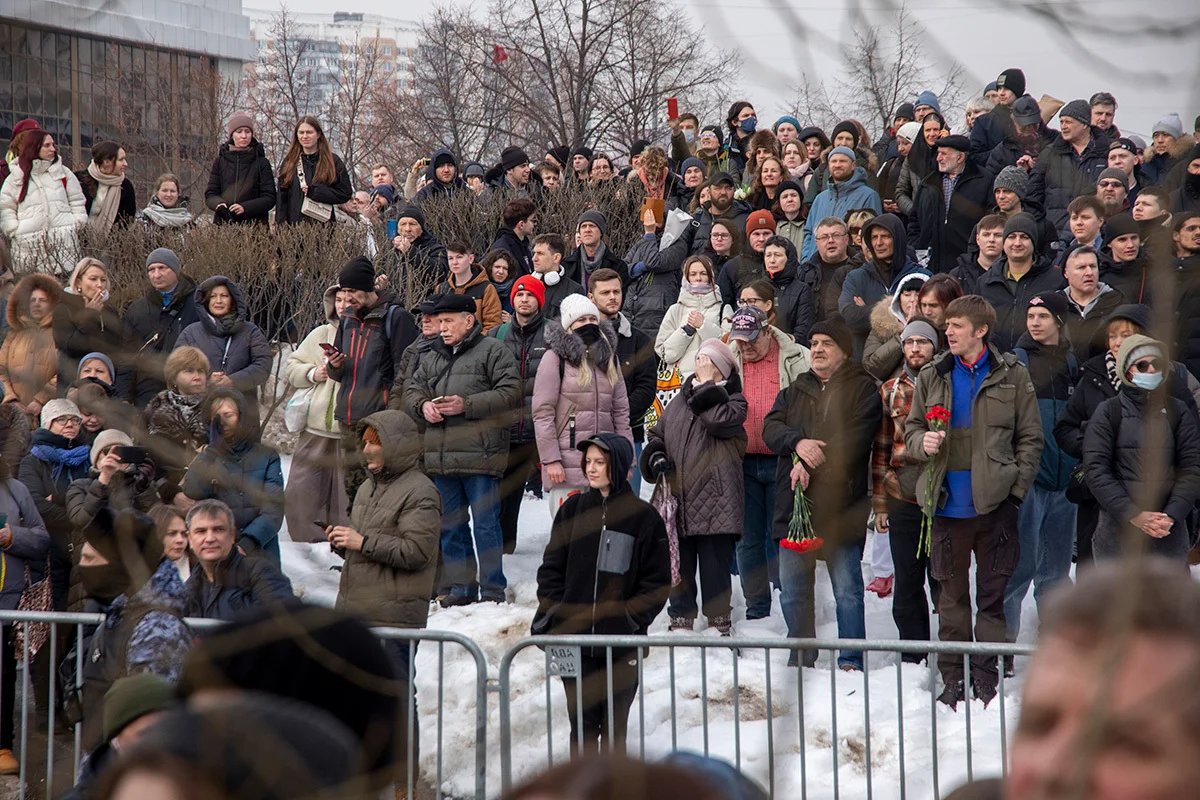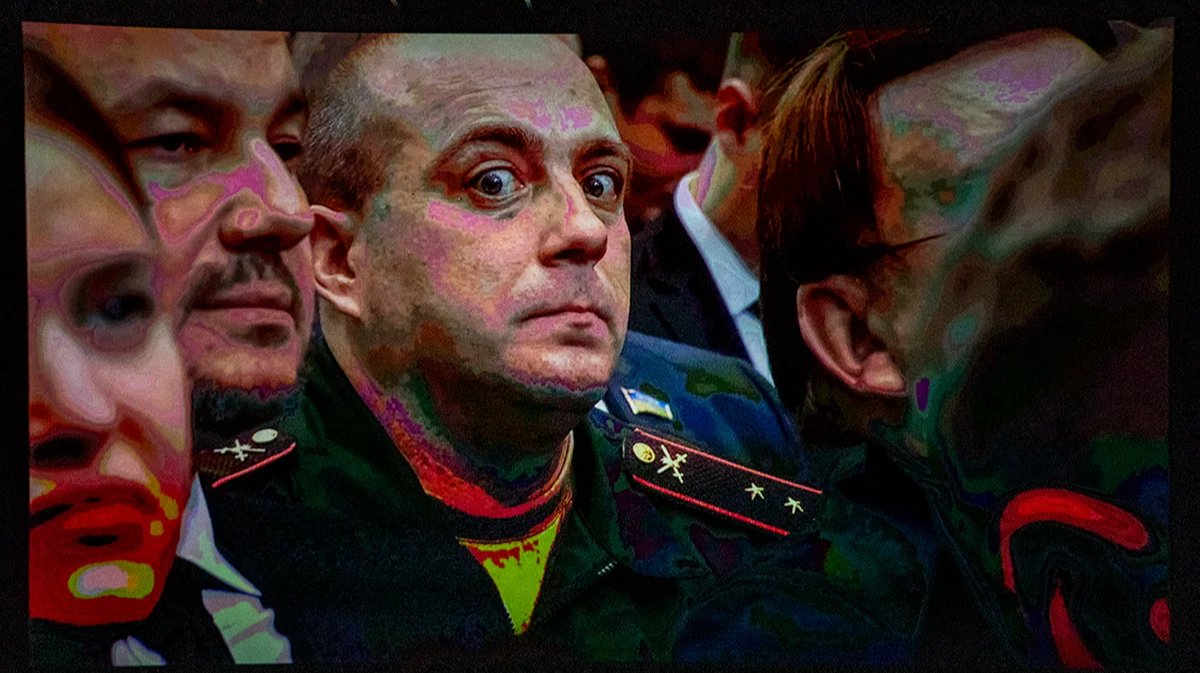Russia’s finest people — deputies, governors, members of the government — gathered in Moscow on 29 February to hear the president’s annual address and to greet it with thunderous applause. But beyond those walls, it was business as usual.

Leonid Gozman
Russian opposition politician
Russian soldiers, who, let me remind you, must under no circumstances be discredited, which means you can’t say anything about them at all, are still killing and being killed in Ukraine. The police arrest those who have incorrect thoughts. Courts give them prison terms, or sometimes just fines, because they’re humane like that. The Justice Ministry is drawing up new lists of foreign agents. As I write, novelist Lyudmila Ulitskaya has just been added to one. And as Putin spoke, preparations were still ongoing for the funeral of Alexey Navalny, or, to be more precise, every effort was being made to ensure that a man who died in prison, or, as many think, was killed in prison, could not be buried humanely and mourners not be allowed to pay their respects.
But to those gathered in the hall — both the audience and the speaker himself — none of that was real as they inhabit another world. For once, Putin was only 14 minutes late, which by his standards is on time, and the main event of the year (one of many) got underway.
For the propagandists, the big news was how long he spoke: two hours and six minutes. A record, they say. Less was said about the specifics, which is understandable. You couldn’t stretch that to two hours.
Putin spoke of practical tasks and made specific promises. Which is not really where the head of state’s focus should be. He should be talking strategy: how Russians are going to live, where the country is headed and how he plans to take it there. He did in fact touch on these points, but without wanting to seem impolite, I’d prefer he hadn’t.
He began by talking about the war, without really saying anything about it, except that the overwhelming majority of the population supported it and that Russia had nuclear weapons, and if there was another war, everybody would be within range. He spoke about ballistic and cruise missiles and munitions factories working round the clock. And how testing nuclear powered cruise missiles and underwater unmanned vehicles had demonstrated their unique capabilities. Those who had no heating all winter were thrilled.
He didn’t mention housing and utility trouble, incidentally, but why would he? That’s not a problem for the tsar.

People watching the presidential address live at a cinema. Photo: Dmitry Tsyganov.
And what about Ukraine? Russia has been fighting for two years and has killed a lot of people, but just as it was unclear why Russia began the war in the first place, there is equally little clarity now. Maybe it really was, as it seemed at the time, just a whim, a grudge, a desire and nothing more. Just so that Ukraine would cease to exist. He doesn’t like it. It didn’t appear on the map in the days of Louis XIV. Lenin invented it. He pretty much said nothing about all that.
OK, so the war is ongoing. But tell us, father of the nation, what are we fighting for? Even Tucker Carlson said your musings on denazification were the dumbest thing he had ever heard. But how will the war end? We get that you don’t know when it will end. Ukrainians don’t realise how lucky they are and have chosen to put up resistance. But how will it end? Do you want to take Kyiv, capture Zelensky and put him in a cage? Tell us. Set a goal!
In World War II, which the government has been leeching off for years, there was a clear understanding of what victory meant. Liberate the land and destroy Hitler’s regime. That meant the Red Army taking Berlin “to finish off the enemy in his lair”. But what about now? The fall of Avdiivka isn't really comparable.
In my view, Putin doesn’t talk victory because he knows the war must go on forever, and victory, like the horizon, is ever-receding. War is disastrous for the people and the country, but not for the authorities.
The very existence of the regime depends on war, as without it Russia would be unable to live in peace with either its neighbours or its own people.
He didn’t say much about the way the country is developing either. I mean, he talked a lot, but I still didn’t understand how exactly things were going to improve. Well, he announced new national projects. He’s done that before. He said Russia is the largest economy in Europe and the fifth largest in the world. And that things can only get better. Soon Russia will be the fourth largest. And its BRICS will soon outstrip their G7. Of course he didn’t say that in terms of GDP per capita, we are in 74th place, but you can’t include everything.
And what are a few unhappy souls compared to our greatness! But we won’t forget those souls either. We’ll fight poverty. We already are, he says, and the signs of success are plain to see. There used to be this many people living below the poverty line before, and now there are only that many. But who’s counting? As to the actual figures, work that out for yourselves. The ungrateful people don’t want to understand that their standard of living just keeps on improving.
But Putin reassured them that in Europe it was even worse. There’s no heating and nothing to eat there. In Soviet times, there was a joke: “If we have it so good here and they have it so bad there, why do we have it so bad here and they have it so good there?” Neither this time nor in any of his other addresses has he ever said a word about how he will fight poverty, and the reasons behind it. Isn’t this the state he built?
But what am I on about? Poor people make better subjects.
And demographics. He told us long ago that we should be aiming to have large families. What he didn’t say, though, is what we need them for. Aren’t large families typical of pre-industrial societies? Tell me how you intend to reach this goal. We get that you’ll ban contraceptives and abortion. But what else? Tell us what you’ve already done on that front and, most importantly, why you think it’s working. Tell us the mistakes that were made and what lessons were learned.
And tell us, while you’re at it, where Russia is headed under your never-ending rule. Some think towards a dead end, and that that’s your fault. But we won’t get an answer to that question, because nobody is asking it. The people in the audience didn’t come for answers. They don’t care about the content of the speech. They just want to make sure they’re invited back next year. Nobody else is listening. But at least there was support from the naked party host and influencer Nastya Ivleyeva, and erstwhile presidential spoiler candidate Ksenia Sobchak, who both tuned in and publicly professed their satisfaction.
It is interesting that in two hours and six minutes of talking about how good things are going to be in 2030, he didn’t say once, not even for decency’s sake, that this was all contingent on him winning the election. I don’t think he has much doubt he’ll win. And neither do we.
The man who has ruled Russia unchallenged for a quarter of a century is not in dialogue with either the people or the country.
He showed us that again in this address. He talks about things people aren’t interested in: the traditional values our country will always be upheld. Our fellow citizens in fact have the same values as everyone else on Earth, but the state has its own, and that is autocracy from top to bottom. And you’re either with it or you’re against it.

Mourners attend Alexey’s funeral. Photo: Dmitry Tsyganov.
And the funeral of his chief enemy — which he was thinking about as he spoke — went off exactly the way he didn’t want it to. Tens of thousands of people turned out, and this despite the barriers and the obvious risk of trouble. The funeral of the last chairman of the Soviet Union’s Council of Ministers, Nikolay Ryzhkov — a good man, by the way — was being held at the same time. Three buses took important dignitaries to the Cathedral of Christ the Saviour but that was it. But at Navalny’s funeral, people didn’t just demonstrate their grief and solidarity. They demonstrated an understanding of good and evil, of truth and hypocrisy. And no presidential address or propaganda campaign can change that.
Views expressed in opinion pieces do not necessarily reflect the position of Novaya Gazeta Europe.
Join us in rebuilding Novaya Gazeta Europe
The Russian government has banned independent media. We were forced to leave our country in order to keep doing our job, telling our readers about what is going on Russia, Ukraine and Europe.
We will continue fighting against warfare and dictatorship. We believe that freedom of speech is the most efficient antidote against tyranny. Support us financially to help us fight for peace and freedom.
By clicking the Support button, you agree to the processing of your personal data.
To cancel a regular donation, please write to [email protected]

